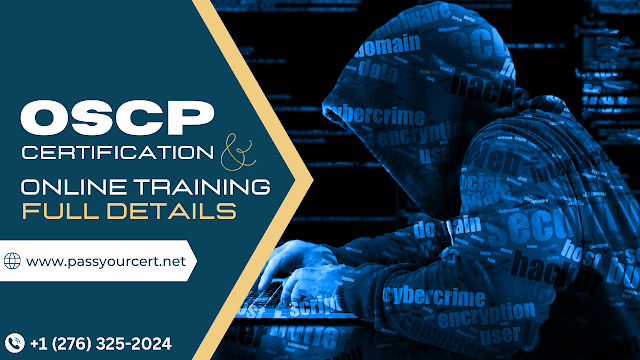AWS DevOps Certification: The Bridge Between Cloud and Development
Businesses continuously seek methods to improve operations, increase scalability, and provide apps and services more swiftly than ever in today's fast-paced digital environment. With Amazon Web Services (AWS) in the fore, cloud computing and DevOps (Development and Operations) ideas are combined here. The AWS Certified DevOps Engineer certificate bridges the software development and cloud computing industries, allowing individuals to specialize in both sectors.
The Role of AWS in DevOps Transformation
One of the top cloud service providers, Amazon Web Services, has been instrumental in transforming how applications are created, deployed, and managed. AWS allows businesses to automate procedures, accomplish continuous integration and continuous delivery (CI/CD), and grow their infrastructure as needed. These services and solutions are created to enable DevOps methods.
Why AWS DevOps Certification?
1. Endorsement of Expertise
Obtaining the AWS Certified DevOps Engineer certification is a testament to your expertise in implementing DevOps practices on the AWS platform. It validates your ability to design, manage, and maintain AWS-based DevOps solutions.
2. Competitive Advantage
In a competitive job market, having an AWS certification can set you apart from the crowd. Employers seek professionals who can navigate the complexities of AWS and apply DevOps principles effectively.
3. Skill Enhancement
The certification process equips you with a comprehensive skill set, including proficiency in AWS services, automation tools, and DevOps best practices. These skills are highly transferable and sought after in the IT industry.
4. Career Opportunities
AWS DevOps professionals are in high demand. Organizations across industries are looking for experts to help them optimize their cloud infrastructure, increase agility, and deliver better products and services to their customers.
Key Areas of AWS DevOps Certification
The AWS Certified DevOps Engineer - Professional exam assesses your knowledge and skills in various domains, including:
1. Continuous Delivery and Process Automation
This domain covers automation, configuration management, and deployment strategies. You'll learn to use AWS services like AWS CodePipeline and AWS Elastic Beanstalk to streamline development workflows.
2. Monitoring, Metrics, and Logging
Monitoring and troubleshooting are essential in DevOps. You'll delve into AWS CloudWatch, AWS X-Ray, and other tools to ensure your applications run smoothly.
3. Security, Governance, and Compliance
Security is a top priority. You'll explore identity and access management (IAM), encryption, and compliance best practices in an AWS environment.
4. High Availability and Elasticity
Learn how to design and implement highly available and scalable systems using AWS services like Amazon EC2 Auto Scaling, Amazon RDS, and Amazon Aurora.
5. Storage and Data Management
Data is at the core of many applications. This domain covers various AWS storage services and databases, including Amazon S3, Amazon RDS, and Amazon DynamoDB.
AWS DevOps Certification: A Career Investment
The need for qualified personnel who can bridge the gap between development and operations on the AWS platform will only grow as organizations migrate to the cloud and adopt DevOps practices. You can succeed in this dynamic environment with the expertise and accolades that come with an AWS DevOps certification.
Being an AWS Certified DevOps Engineer positions you as a significant tool for businesses looking to use the cloud and DevOps techniques to accelerate innovation, deliver products more quickly, and maintain competitive advantage.
Preparing for the AWS DevOps Certification
The journey to becoming an AWS Certified DevOps Engineer is both rewarding and challenging. Here are some steps to help you prepare effectively:
1. Understand the Exam Blueprint
Review the AWS Certified DevOps Engineer - Professional exam guide provided by AWS. This document outlines the domains, objectives, and sample questions you can expect on the exam.
2. Training and Resources
AWS offers official training courses and materials to help you prepare for the certification. These courses cover the key concepts and services relevant to the exam.
3. Hands-On Experience
Hands-on experience is invaluable. Create AWS accounts, set up environments, and practice working with AWS services. The more you interact with AWS, the better your understanding will be.
4. Practice Exams
Use practice exams and sample questions to assess your knowledge and get a feel for the exam format. This can help you identify areas where you need additional study.
5. Study Groups and Communities
Join AWS DevOps certification study groups or online communities where you can ask questions, share insights, and learn from others who are also pursuing the certification.
6. Time Management
Plan your study schedule, allocate sufficient time to each domain, and set realistic milestones. Effective time management is essential for comprehensive preparation.
7. Review and Hands-On Labs
Regularly review your notes and practice what you've learned through hands-on labs. Applying theoretical knowledge to practical scenarios is crucial.
8. Stay Informed
Stay up-to-date with AWS announcements, new services, and best practices. AWS continually evolves, and your knowledge should grow with it.
In Conclusion
The AWS Certified DevOps Engineer certification represents a significant milestone in your career journey. It's a testament to your expertise in cloud computing and DevOps practices. As organizations increasingly rely on cloud-based solutions and seek to optimize their development processes, your skills and certification will become invaluable.
So, suppose you aspire to bridge the gap between cloud and development, enhance your career prospects, and contribute to the world of DevOps. In that case, the AWS DevOps certification is your bridge to success. Embrace this exciting journey, prepare diligently, and confidently embrace the future of cloud-based DevOps solutions.
%20656-0395%20(3).png)


Comments
Post a Comment